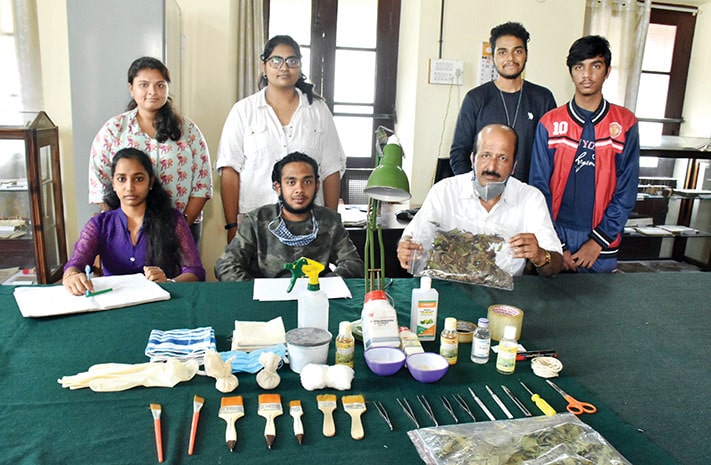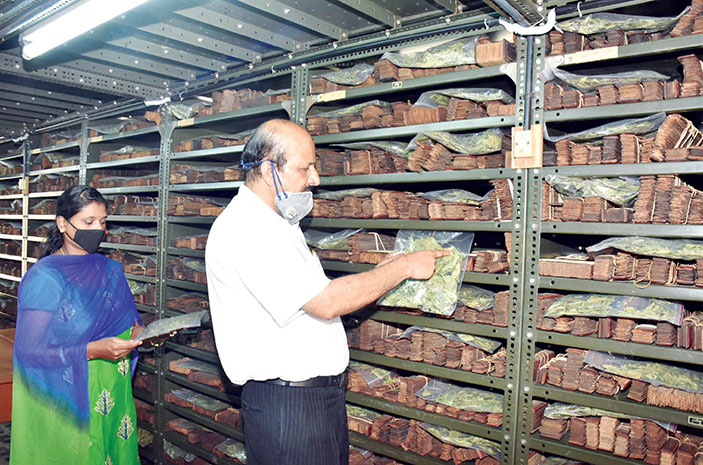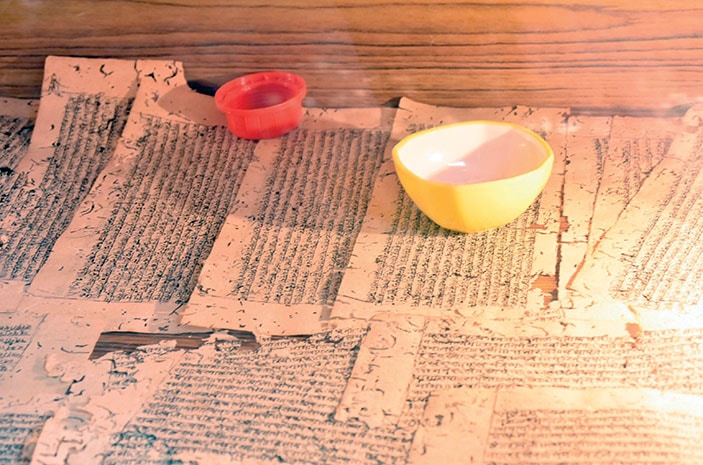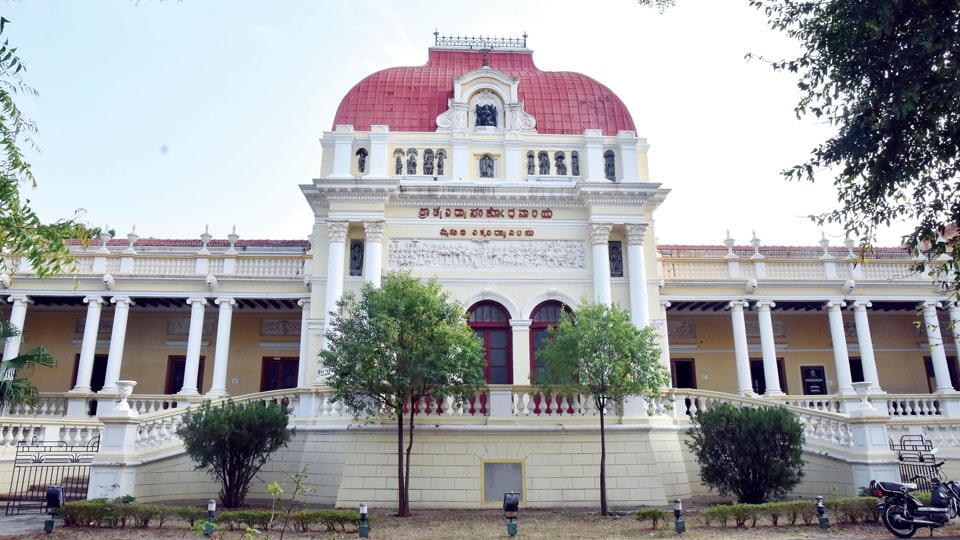ORI becomes first in South India to adopt fumigation method
Mysore/Mysuru: The Oriental Research Institute (ORI), a treasure trove of priceless palm scripts and paper manuscripts of many centuries, is embarking on an ambitious project of creating a Fumigation Chamber to improve longevity of these manuscripts.
With this, ORI has become the first institute in South India to adopt this technology. This method was very important before going for digitalisation of manuscripts. Though University of Mysore (UoM) was granting this fumigation process, students of Department of Ancient History and Archaeology and Museology and Department of Sanskrit, Maharaja’s College, have come forward to do this work as part of internship.

Prof. S. Shivarajappa, Director, ORI, told SOM “We have thousands of palm-leaf and paper manuscripts dating back to several centuries. However, the condition of these manuscripts had deteriorated due to various factors despite regular maintenance by staff. The existing manuscripts will be placed inside the Fumigation Chamber to make them free from dust and termite. At one time, around 20-25 manuscripts could be fumigated. With this simple technology, these manuscripts may be preserved for another 400-500 years. It is a continuous process and our staff will be imparted training to undertake this task.”
He said a proposal to set up a state-of-the-art laboratory for the chemical treatment of palm scripts and manuscripts would be submitted to the Government. This would help in the conservation of thousands of manuscripts for many centuries to come. Annual maintenance cost of the proposed laboratory may come around Rs. 5 lakh. The Government of Karnataka would be requested to fund for this project, he added.
The Director said the Institute has palm leaves dating back to 4th century and Kautilya’s Artha Shastra. Prof. R. Shyama Shastri published a book on Kautilya’s contribution to economy, social life and nature way back in 1908. It would be much helpful for research scholars to study palm leaves to understand life of people during those days, he added.

Concerted efforts
Dr. Rohitha Eswer, Assistant Professor, Department of Ancient History and Archaeology and Museology, said he had a passion for the manuscripts since his College days and would visit the ORI regularly. During this time he found that the condition of manuscripts was deteriorating and wanted to do something to preserve them. Upon approaching, Prof. Shivarajappa and the UoM authorities, they gave green signal to use the Department students in this task. Subsequently, he contacted Dr. S. Subbaraman, former Superintending Archaeological Chemist, Archaeological Survey of India (ASI), Government of India and former Director, INTACH, Bengaluru, who personally visited ORI to share his experience in conservation of manuscripts. Dr. Subbaraman is an authority in conservation activities and has played a vital role in preservation of Ajanta and Ellora sites.

He said Dr. Subbaraman was kind enough to give suggestions regarding conservation of manuscripts without damaging its original contents. A number of variety of chemicals will be used for treatment of fungus infested palm scripts and for insects. More importantly, at least a dozen students will be put on this fumigation job daily as part of internship as well as to gain experience. The fumigation process was like a pre-preparation for digitalisation of palm scripts. Only naturally available materials are being used in this process. Once cleaned, it would be easy to read the content.








Recent Comments